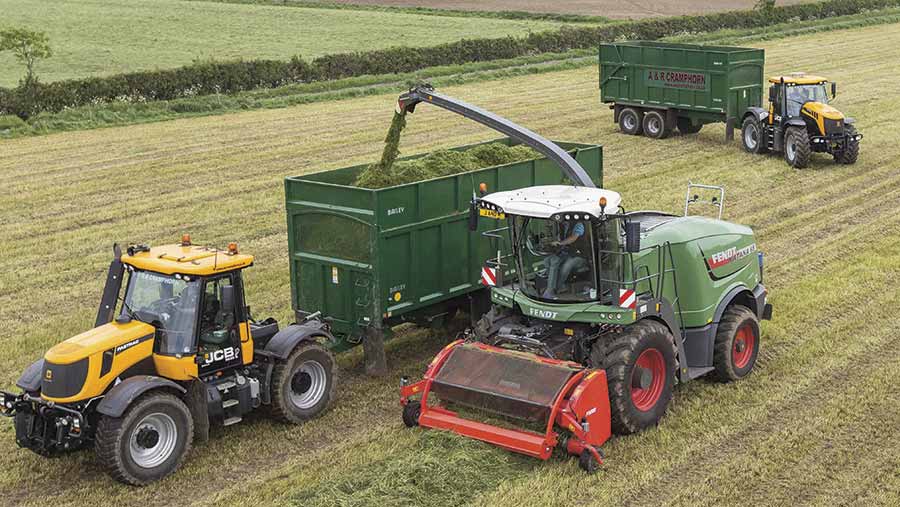What you need to know: farm contracting terms and conditions
 © Tim Scrivener
© Tim Scrivener There are not many industries where a gentleman’s agreement and handshake would suffice before one party undertook thousands of pounds worth of service provision for another.
However, farming remains the exception, with contractors taking on big jobs based on verbal agreements and then cultivating, spraying and harvesting in the expectation they will be paid by a farmer who is happy with their work.
While extra paperwork is not something most contractors and farmers would take on with enthusiasm, Roly Freeman, partner at Chattertons Solicitors and appointed legal services provider to the National Association of Agricultural Contractors (NAAC), explains how written contracts can have a place in modern farming to protect both parties.
See also: NAAC farm contractor charges 2016-17
Why bother with written contracts? Surely word of mouth is sufficient?
 Roly Freeman, partner, Chattertons Solicitors
Roly Freeman, partner, Chattertons SolicitorsWord-of-mouth contracts are obviously the cheapest, easiest and simplest way of entering into a contract and this will hold true right up until something goes wrong.
At that point both parties will be looking to protect their own position and may have a different recollection of what was said during initial discussions.
It is also quite likely that whatever caused the problem was never actually discussed between the parties and there is no agreement as to what would happen or who is responsible when it arose.
A good example is an on-farm accident that breaches health and safety regulations.
Unless prior agreement has been reached on each parties responsibilities, it can quickly lead to confusion and laying of blame.
Minor incidents can usually be resolved but a serious accident will bring a lack of information sharply into focus.
Getting paid promptly for services provided can also be a problem.
Many contractors will work with their customers to negotiate terms, but contractors are not banks and professional businesses cannot be sustained without cashflow.
This is an area where written terms keep on top of things, including interest that can be charged on late payment.
It prevents arguments over what was actually agreed and will undoubtedly save time, effort and legal fees in dealing with problems.
What should be included in a contract?
One of the most important things that needs to be included within a contract is a detailed description of the services that the contractor will provide.
Disputes often arise if one party has a different expectation of what work the other will carry out, so it’s very important to set down the exact detail of service and responsibilities of each party.
In addition, the terms of the contract should detail how payment is to be made and provision for the charging of interest on late payments.
Other helpful clauses include responsibility for providing information and input materials, and the contract can also limit the contractor’s liability for negligence to commercially sensible levels.
Do terms and conditions need to be provided ahead of work being done or can they go on an invoice?
Terms and conditions need to be provided ahead of any work being carried out – they are vital elements of the contract and the farmer must have a reasonable opportunity to read them, so printing them on an invoice isn’t usually the answer.
If, however, work is regularly done for a particular customer and the invoice always contains the terms and conditions then it can be used as an established course of dealing.
Written contracts may put off loyal customers. How can they be introduced?
A professional contractor needs to look after their business and employees but, likewise, when a farmer puts his future harvest potential in the hands of a contractor then both parties need some protection.
Nothing needs to change how the work is carried out, or invoiced, but terms and conditions are a simple way of bringing everyone’s attention to the important aspects of their relationship.
Once something has gone wrong it is often too late to rectify the relationship anyway, so clear boundaries laid out in the terms and conditions should help prevent future disputes and bring benefits for both parties.
At the end of the day, written contracts should be seen as a way forward for professional contractors and be part of their customer service provision.
What happens if something goes wrong?
If the terms of the contract are broken the best advice is to talk to the other party and see if it can be resolved amicably.
If not, the best route is to take legal advice about how to rectify the situation.
In many disputes there may be simple a solution but, if not, written contracts put everyone on a more professional footing and allow problems to be resolved more effectively.

